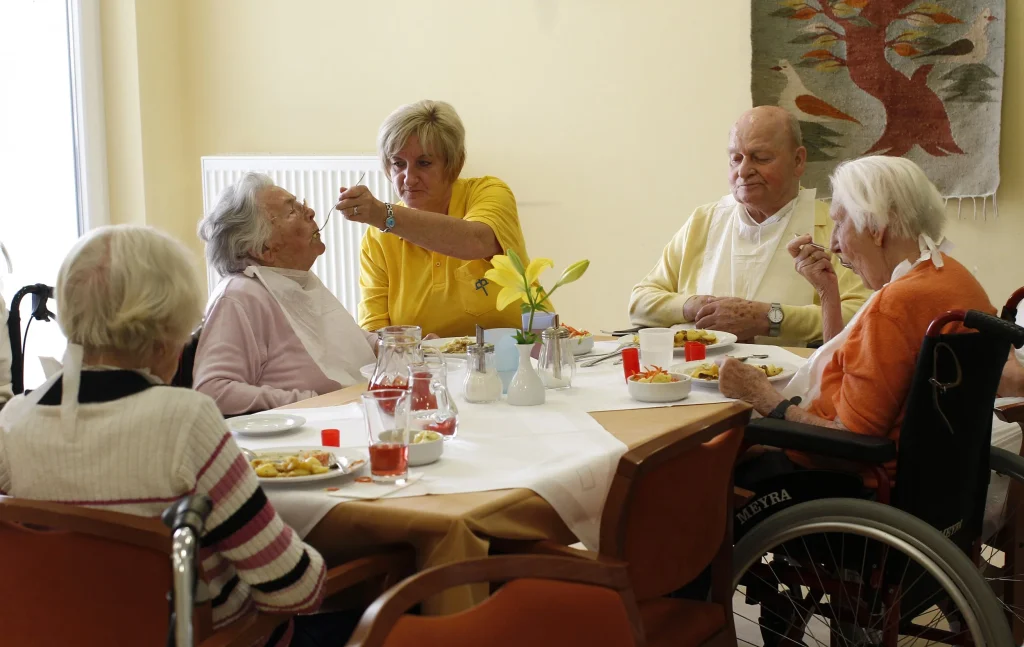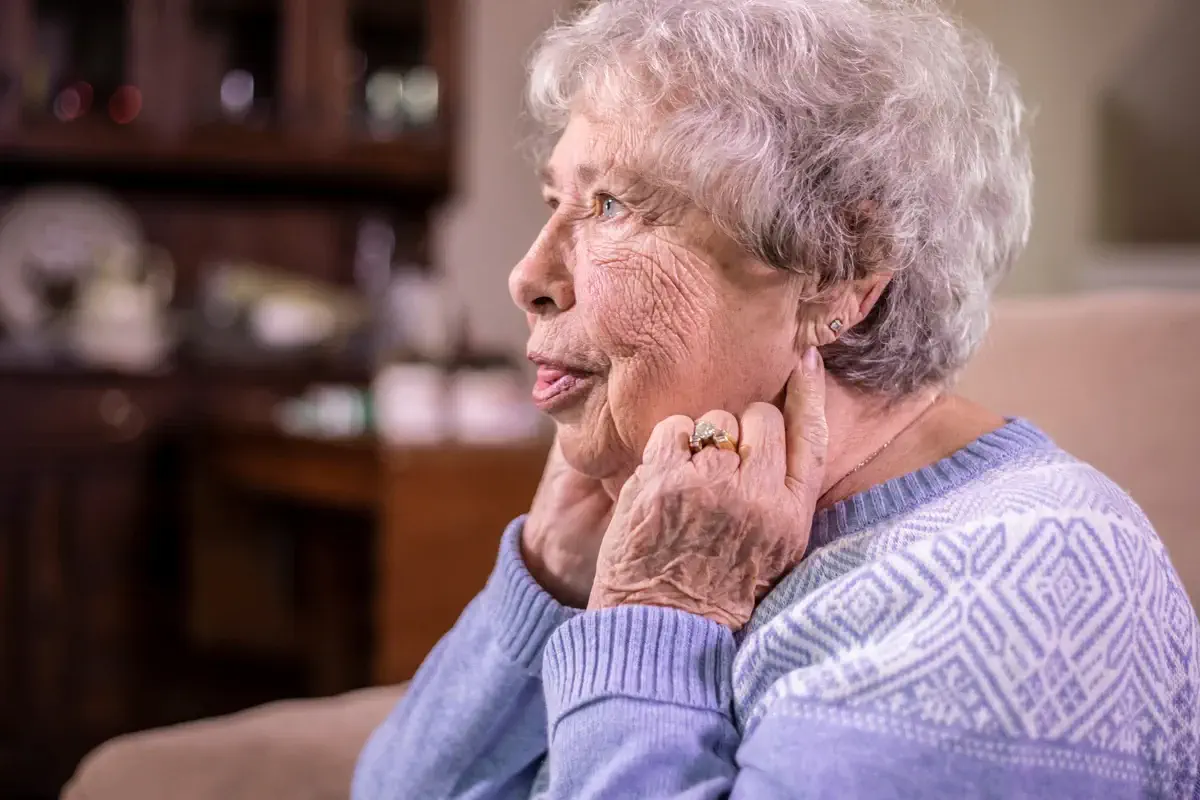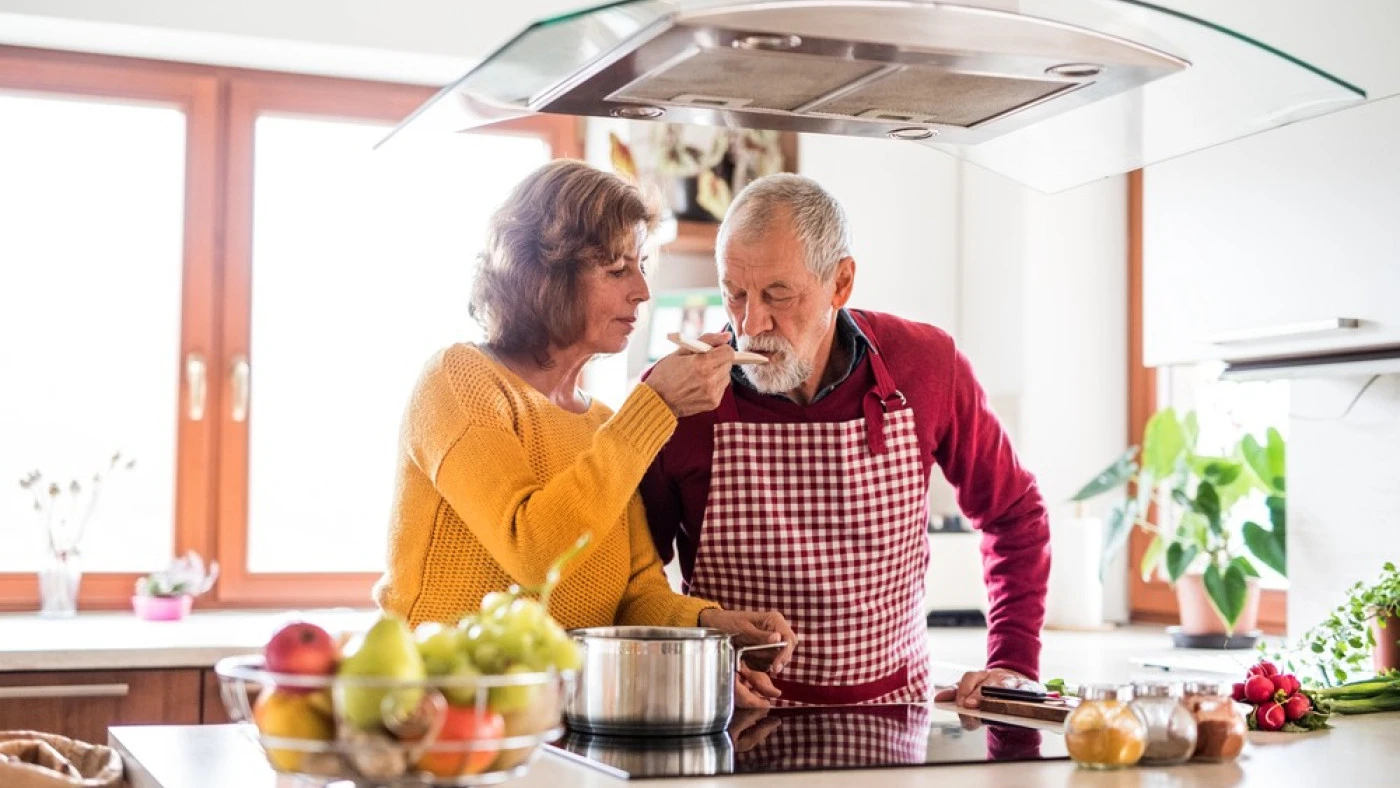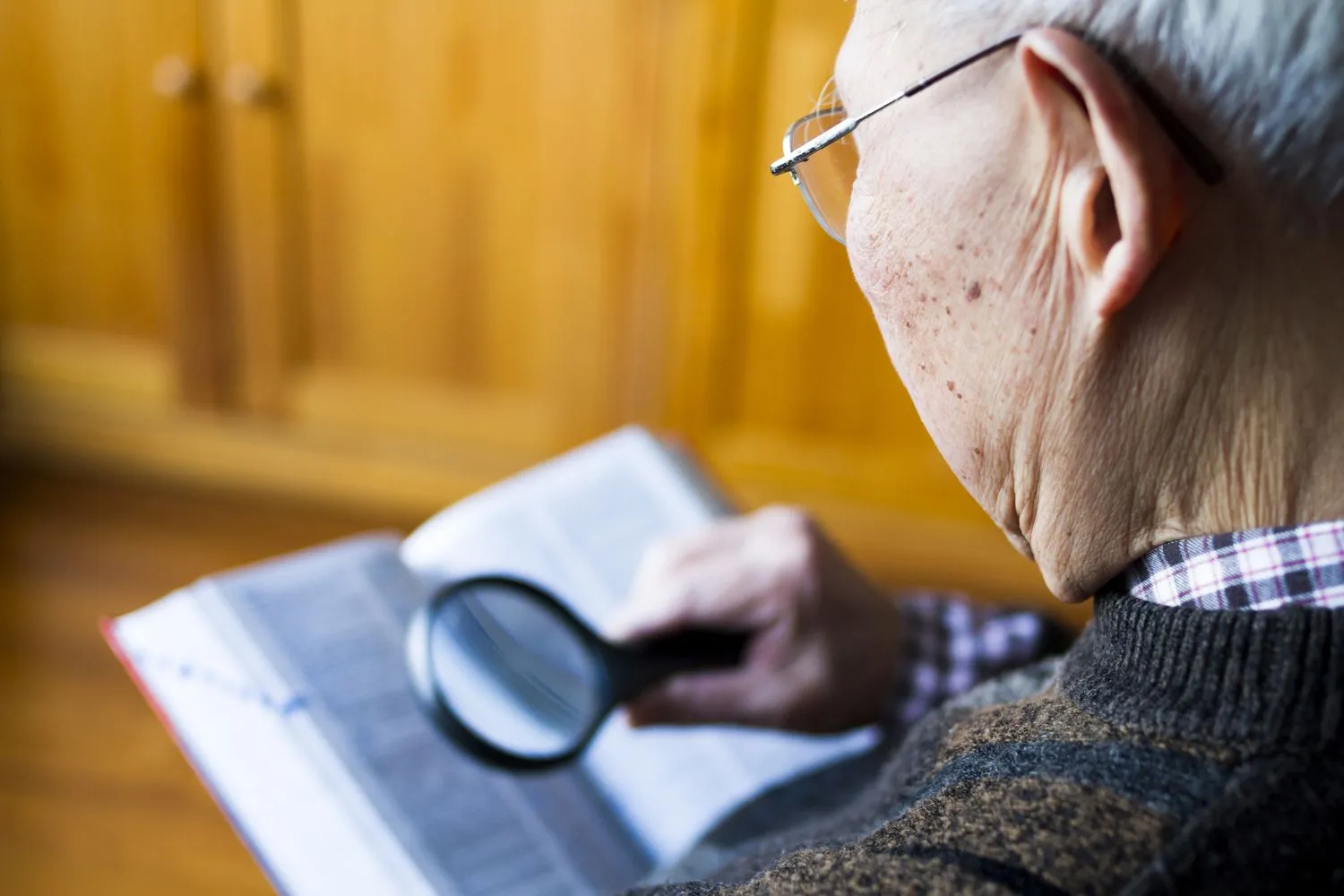
How to Enhance the Five Senses in Seniors
In this article from humanhealthmag, we will examine the aging changes of five senses in seniors and how to strengthen them. In general, the physical health of the elderly and the efficiency of their five senses are very different from each other. A 75-year-old may hear you speak very softly. While a 65-year-old may not even hear the doorbell; in any case, we should know that reaching old age is accompanied by physical changes, especially a decrease in vision, hearing, taste, smell, a decrease in physical strength and motor coordination and the speed of reaction to stimuli.
Another physical change of old age is that the elderly are more sensitive to cold and heat, and the elderly cannot adapt their bodies to heat and cold. The decrease in the sensitivity of sensitive receptors in the senses of taste, smell and touch to external stimuli is quite clear and noticeable during old age.
This causes the elderly to have problems understanding tastes, smells, and understanding the properties of objects through touch. By ignoring the sensory problems of the elderly, we should not jeopardize the type of relationship, safety, physical and mental health of the elderly. Join us to learn about important points in the field of Aging changes in the senses.
The Effect of Aging on the Five Senses in Seniors
The five senses in seniors receive information from the surrounding environment in the form of sound, light, smell, taste, and touch. Sensory information is converted into nerve signals and transmitted to the brain. There, the signals are converted into meaningful emotions. Before we become aware of a sensation, a sufficient level of stimulation must be created for that sense. This minimum level of sensation is called the threshold. As we age, this threshold rises, and as a result, we need more stimulation to be aware of this sensation.

The decline in the five senses in senior is one of the problems that the elderly face. The decrease in the sensitivity of sensory receptors in the senses of taste, smell, and touch to external stimuli is quite evident during aging. This causes the elderly to face problems in perceiving tastes, smells, and understanding the characteristics of objects through their touch. There is no doubt that the inattention of those around them regarding the sensory problems of older people can pose risks to the type of relationships an older person has and to their physical and mental safety and health. Therefore, by recognizing these limitations, we can take measures so that the older person can use their senses properly.
Sense of Taste and How to Enhance it in the Elderly
The sense of taste is one of the most important of the five senses in seniors. The sensitivity of taste receptors to tastes in the elderly decreases noticeably after the age of 60. Factors such as harms of smoking in the elderly, wearing dentures, taking medication, and being exposed to environmental pollutants can weaken the elderly’s ability to recognize different tastes. The inability to recognize tastes causes the elderly to not enjoy eating food much, which in turn causes malnutrition in the elderly. Of course, observing oral hygiene in the elderly is also very important in the elderly, and failure to observe it can affect the sense of taste.
The method of enhancing the sense of taste in the elderly is as follows:
- Adding different seasonings (if they are not allergic) to food makes it more enjoyable for the elderly and makes it easier to recognize foods.
- Encourage the elderly not to smoke and keep them away from environmental pollutants to enhance the elderly’s sense of taste.
- Non-food items or hazardous materials that have containers similar to medicines or food items should be kept out of the reach of the elderly as much as possible.
Sense of Smell and How to Enhance it in the Elderly
The sense of smell is one of the most important of the five senses in seniors. The number of olfactory receptors in the elderly decreases after the age of 60, which causes the elderly to have a weak sense of smell. In addition, the inability to remember and memorize the names of odors is also effective in reducing the level of performance of this sense.

An elderly person who is unable to detect the smell of gas or the smell of burning substances cannot take timely action to escape the situation or eliminate the dangerous factor. Therefore, with more attention to the elderly and more care, we should take care of our elderly by hiring a committed caregiver or nurse so that no problems arise for them.
The way to enhance the sense of smell in the elderly is:
- Provide the elderly with objects and substances with different odors and help the elderly to recognize the smell of each substance by smelling them. This will strengthen the elderly’s sense of smell.
- Where an elderly person lives, materials with strong odors should be avoided as much as possible. It is also necessary to minimize environmental pollutants to enable the elderly person to be able to distinguish between odors.
Five Senses in Seniors: Sense of Touch
The experience of old age is usually accompanied by a decrease in tactile abilities, especially in the hands and fingertips, and for this reason, enhancement of the five senses in seniors, especially the sense of touch, is very important. This sense of the five senses in seniors must be strengthened so that the elderly do not get into trouble. The reason for this is the decrease in blood flow in the previously distant organs such as the hands and feet, which occurs especially after the age of seventy. Therefore, the elderly who need to use their sense of touch more than others (such as the blind elderly) face serious problems during this period.
Methods for enhancing the sense of touch in the elderly include:
- Exercising the sense of touch in the elderly makes them understand the tactile differences of objects (roughness, softness, coldness, warmth, size and other characteristics) to a great extent. Therefore, we can provide the elderly with different materials and objects and ask them to explain their differences.
- Encouraging the elderly to move their arms and legs, especially their fingers, helps to increase blood flow and maintain the agility of their tactile organs.
- It will be easier for the elderly to touch objects accurately if these objects are free of any contamination. Therefore, observing safety tips such as keeping the equipment used by the elderly clean and avoiding frequent movement will make it easier for the elderly to touch these items.
- Many elderly people use their sense of touch to find objects due to poor vision, so we should keep sharp or heat-generating objects out of their reach. In addition, using tactile signs can also make their living environment safer and their movement easier.
Weakness in the Five Senses in Seniors: Sense of Eyesight
Weakness or complete loss of the five senses in seniors, such as the sense of sight, imposes the greatest limitations on the elderly. For example, excessive clouding of the lens causes cataracts. If this disease spreads, it can cause blindness in the elderly. The number of people with cataracts increases 10 times from middle age to late old age (senility). If the patient is treated in time, surgery can solve the problem in elderly people. If vision problems are not addressed, ophthalmology in seniors may also occur.

Destruction of light-sensitive cells in the center of the retina is one of the most important factors in the occurrence of blindness in the elderly, which is caused by old age, diabetes, exposure to strong sunlight or some environmental events. This problem can first appear as symptoms such as photosensitivity in the elderly. In addition to observing safety issues, especially securing the elderly’s home, timely visits to the doctor, using appropriate diets, and caring for the elderly with the help of a caregiver or nurse can prevent the occurrence or progression of many vision problems in old age.
Hearing in the Elderly
Reduced blood flow in the ear causes the death of the auditory cells of the inner ear, resulting in presbycusis in the elderly. As a result, this sense should be strengthened, like the other five senses in seniors. Hearing-impaired or deaf elderly people naturally have a lower level of safety in social relationships, especially since the inability to understand the speech of those around them faces many problems in communicating and, at times, causes the elderly to be rejected even by their relatives and friends.
The method of dealing with hearing-impaired elderly people includes the following:
- When talking to the elderly, we should not shout, but it is better to speak clearly and slowly and be more patient when repeating words.
- When we see symptoms of hearing loss, infection or ear pain in an elderly person, we should immediately take him to a specialist for examination so that timely treatment (such as using a hearing aid) can prevent future problems in the elderly.
- When talking to elderly people with hearing problems, we should reduce as much as possible the extra noise so that the elderly can understand the words well. The elderly with hearing loss look at our faces to better understand our words so that they can better understand what we mean from our facial expressions and gestures. When talking to the elderly, we should remain calm. We should count the words and speak clearly and accompany our speech with head and hand gestures so that the elderly does not get annoyed and do not feel uncomfortable, which can cause mental and spiritual damage and cause other diseases such as depression.
Concluding Remarks
The five senses in seniors, namely hearing, sight, taste, smell and touch, also change over time, like other parts of the body. As we age, they are no longer as sharp and sensitive as they used to be, making it harder to perceive details of our surroundings. Sensory changes can change our lifestyle and make it difficult to communicate, enjoy activities and interact with others. Changes that sometimes lead to isolation.
Could you help us make this content even better? What do you love, and what can we improve? Share your thoughts below, feedback is the key to creating better content for YOU. If you also have an experience in this regard, please share it with us and others.

Frequently Asked Questions
Is Aromatherapy Good for Enhancing Your Sense of Smell?
Yes, it can be done with the help of natural oils. Natural oils are a good option for improving the five senses in seniors is like the sense of smell. 3-4 of these oils, including lemon, rose, vanilla and cedarwood, are among them. There are also certain raw materials that are considered useful for the treatment. Try to always have a jar of jam filled with coffee, spice leaves and some fragrant natural shampoos and smell them every now and then.
Does Reducing Salt and Sugar Affect the Sense of Taste?
Salt and sugar are considered basic tastes and prevent us from understanding the true taste of food, because they have a stereotypical taste. When you eliminate these flavors from your food, after a few days you will notice that you understand complex flavors better and enjoy them more. You should not completely eliminate salt from your food. A minimal amount of salt will improve the taste of the food you cook, but if you try to use a lot of salt on every dish, you will gradually lose the ability to understand the true taste of the food.
